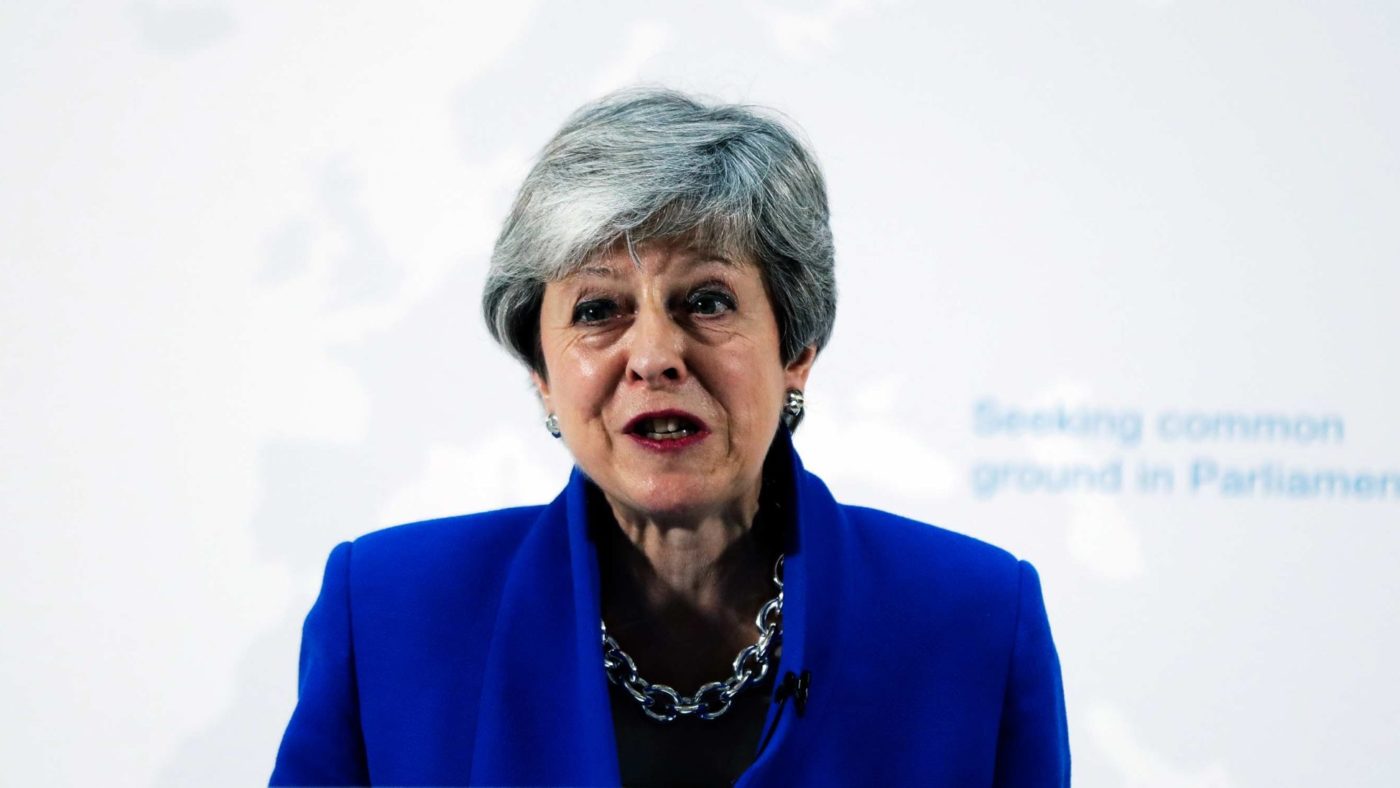On Tuesday afternoon, the Prime Minister made a speech in London setting out what she described as “the new Brexit deal”. In the course of the speech, Theresa May outlined a “ten-point offer” to MPs in the hope of persuading them to vote for the Withdrawal Agreement Bill (WAB), which is currently due to be introduced in the House of Commons at the beginning of June.
The offer included further reassurances on the Irish backstop, new legislation to retain EU-level standards on workers’ rights, and commitments to match the EU’s environmental safeguards and food standards. May also promised to give MPs anenhanced role in approving the terms of the Government’s mandate in the next phase of the negotiations, and pledged to hold a vote on a “customs compromise” to break the political deadlock. Most strikingly, she offered MPs the chance to vote on a second referendum if the WAB is passed by the House of Commons.
Almost immediately, the Conservative backlash against these proposals began. Several Tory MPs who had (reluctantly) supported the Government in the third meaningful vote said they would not be prepared to vote for it again.
Dominic Raab, the former Brexit Secretary, said that he could not vote for legislation that would be “a vehicle for a second referendum or a customs union.” There have been calls for the May to drop the Bill entirely or bring forward her resignation: Tuesday’s newspapers make grim reading for the Prime Minister. All of this and there is no sign of movement from the Opposition. Jeremy Corbyn denounced May’s offer as a “rehash of her old bad deal” and said Labour would not support it.
In short, the Prime Minister seems to be going backwards in terms of Parliamentary support. There was always a risk, of course, that making concessions to Labour would lose some support from her own backbenches. The problem is that she is now trying to sell them a cross-party deal without having won cross-party support. From the point of view of her Conservative critics, May’s latest offer merely confirms the impression that she has lost any sense of direction, that she will do anything to get her Brexit deal over the line.
The timing of the announcement was also unfortunate. Two days ahead of the European elections, “compromise” was not the word that Conservatives wanted to hear. They are spooked by the rise of Nigel Farage’s Brexit Party, and the mere mention of a second referendum by the Prime Minister has given him another line of attack. The fact that some Conservative MPs are also over-interpreting what she offered has not helped.
Labour’s reaction to May’s offer is less understandable. In some ways, the Prime Minister has offered the party everything it asked for – or certainly everything it could have hoped for under the terms of the current Withdrawal Agreement. The commitments on workers’ rights and environmental standards are straight Labour demands. The idea of giving MPs a direct say over the Government’s negotiating mandate builds on the idea originally proposed by Labour MPs Lisa Nandy and Gareth Snell. On the customs union, it is true, May has offered Labour something less than they would ideally like. But the offer of a customs union until 2022 – if that is what Parliament wants — keeps the door open on a soft Brexit for longer, and would allow Labour to put the proposal to the electorate in a General Election.
The real problem for May is that MPs on all sides have little incentive to compromise. Having announced her own departure, the Prime Minister is not in a position to honour any of the promises she has now made. With a Conservative leadership election imminent, and a General Election increasingly likely, MPs know that any legislation passed by the current Parliament can be undone by the next one. A Government with a stable majority would have no problem overriding the legislative guarantees enacted by the current one.
Even if the current Parliament struggles on – or if another hung Parliament is returned – MPs cannot be certain how any votes will go. Parliamentary opinion is so volatile that MPs do not trust themselves to take the decisions with respect to the different Brexit outcomes. MPs on the two extremes – the No Dealers and those calling for Article 50 revocation – actually need the Parliamentary deadlock to continue until the October deadline, the point at which they hope to force a choice between these two outcomes.
Ultimately, the Prime Minister has offered a compromise at the very moment when the chances of a compromise are receding. A change in leader will not change the Parliamentary arithmetic, but it will force the Conservative Party to confront the political consequences of Brexit.
CapX depends on the generosity of its readers. If you value what we do, please consider making a donation.


